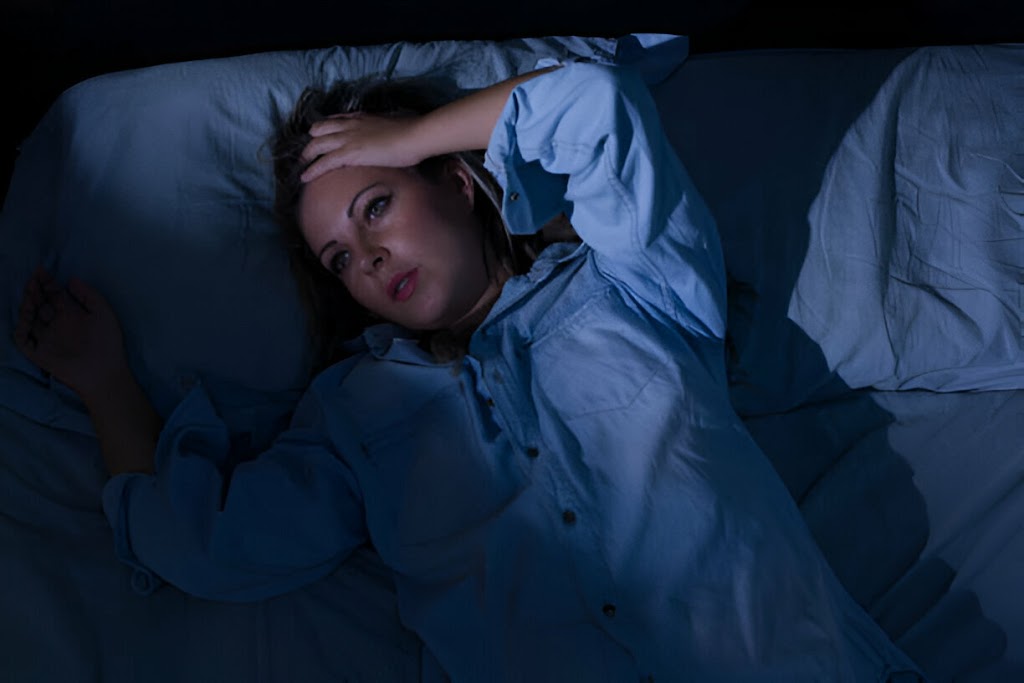Introduction
Anxiety affects rest, yet poor rest worsens anxious feelings. Grasping this loop helps keep mood steady or body strong.
Anxiety disorders cover many problems where someone feels constant worry, fear, or unease. They can show up as general anxiety, panic attacks, nervousness around people, or strong fears of certain things. Those dealing with it might get stuck on troubling thoughts, feel their heart race, sweat more, or struggle to stay focused. Trouble making choices is common too. Often, these issues make everyday tasks harder to handle.
Sleep issues – like trouble falling asleep, breathing pauses at night, or uneasy legs – throw off your body’s internal clock, often leaving you tired, moody, or less sharp during the day. When stress goes up, rest tends to go down; meanwhile, poor shut-eye can ramp up nervous feelings. Over time, one feeds the other, creating a loop that keeps going unless something changes.
Tackling worry and poor sleep at once works better when handled side by side. Sticking to steady bedtimes, winding down with quiet activities before bed, or making your room cozy can boost how well you sleep. Doing these things eases tension during night hours while helping people drift off without struggle.
Chill-out methods help snap the worry-sleep loop. Stuff like slow breaths, staying present, or tensing then relaxing muscles cools your mind at night – so you drift off faster, sleep tighter.
Looking into how anxiety issues link to poor sleep helps people grasp their impact on general well-being. Next parts explore typical anxiety problems, the way anxious thoughts disrupt rest, while also offering real ways to boost mental state and nighttime recovery.
Understanding Anxiety Disorders
Anxiety problems pop up a lot, hitting folks no matter their age or walk of life. These issues come in different forms, each bringing unique signs and hurdles.
Generalized Anxiety Disorder (GAD)
GAD means constant stress over normal stuff – like jobs, money, health, or people around you. Worries feel hard to control, while signs like tension, tiredness, mood swings, also trouble focusing pop up. This never-ending anxious feeling messes with regular tasks, plus lowers how good life feels day to day.
Panic Disorder
Panic disorder means having sudden rushes of extreme fear – called panic attacks – that hit hard and fast. During these moments, someone might feel their heart racing, break into a sweat, tremble, get dizzy, or think they’re falling apart. These attacks often come out of nowhere, catching people off guard. Because of that, some start steering clear of spots or scenarios where they once had an attack, hoping it won’t happen again.
Social Anxiety Disorder
Those who have social anxiety feel intense worry when around people or being watched. Because of this, they might skip gatherings, which messes with their job, connections, and everyday life.
Specific Phobias
Fear of certain things – like spiders, storms, or tall buildings – can feel overwhelming. Facing that fear might cause extreme stress, sometimes leading people to change routines just to steer clear. Instead, they dodge it whenever possible.
Stiff muscles, stomach problems, head pain, or trouble sleeping often show up with anxiety conditions. Knowing how each one works lets people spot when they might need help from a pro – while also trying smart ways to handle what’s going on.
The Impact of Anxiety on Sleep
Anxiety really messes up how well you sleep and your usual rhythm. Lots of people who feel anxious struggle to drift off, thanks to endless thinking, stress, or tight muscles. That usually leads to insomnia – not getting to sleep fast, staying down all night, or rising way before dawn.
Anxiety might mess with your sleep too. Some folks wake up a lot through the night, see intense dreams, or get scared by bad ones. Being on edge – like your body’s bracing for danger – keeps your mind from winding down, so deep rest feels out of reach.
People who struggle with anxious thoughts at bedtime might also deal with things like walking in their sleep, clenching teeth, or briefly being unable to move when waking up. Trouble sleeping doesn’t just leave them tired – it often makes worry during the day feel stronger. This sets off a loop where stress messes with rest, while bad rest ramps up nervous feelings.
Finding out why worry messes with your sleep helps you handle both problems better. Methods like calming exercises, setting habits, or talking to a specialist might stop the loop.
The Role of Sleep Hygiene
A solid nightly routine can make a big difference for people struggling to rest due to anxious thoughts. Following a steady pattern cues your body that it’s time to slow down now instead of staying alert.
A calm nighttime habit tells your brain it’s time to slow down. Reading a book, soaking in a warm bath, or doing light stretches helps release tightness while calming thoughts. Over time, this pattern acts like a signal, guiding you smoothly toward sleep.
A big part of better sleep? Setting up your room right. Keep it dark, cool, or peaceful – it helps you drift off easier. Block out sounds, dim the lights, yet make sure your bed feels cozy. Each detail adds up, helping you recharge fully by morning.
Trying these tips each day might ease nighttime worry while also improving how well you sleep through the night.
Stress Management Techniques
Coping with stress well helps ease worry plus boosts rest quality. Using calming tricks at night lets your head and muscles unwind better.
Mindfulness meditation helps people pay attention to now, noticing thoughts without reacting. It might quiet a busy mind while lowering stress at night. Breathing slowly or relaxing muscles step by step works well – both soothe nerves and get the body ready to rest.
Working out often helps lower stress stuff while raising feel-good brain chemicals like endorphins. Doing yoga, taking walks, swimming, or whatever you enjoy can help your emotions and improve how well you sleep.
Doing quiet pastimes like drawing, playing tunes, or tending plants helps people relax, easing stress that comes with worry. Making time for these things every day could slowly get better how you handle nerves – and catch more rest at night.
Health Anxiety and Sleep
Worrying too much about health means getting stuck on small body signals or possible sicknesses. When this never stops, unwinding feels nearly impossible – particularly when trying to sleep at night – which messes up both drifting off and remaining unconscious through the hours.
Cognitive-behavioral therapy helps people handle health-related worries. Instead of getting stuck on fear-filled ideas, they start spotting them – then questioning if they’re really true. Over time, this shift leads to less stress, especially at night when trying to wind down.
Alongside counseling, simple calming tricks might ease bedtime worries about health. Instead of lying there stressed, try slow breaths, quiet thinking, or light movement. These shifts pull attention from racing thoughts while building peaceful feelings at night.
Facing health worries head-on helps people lessen how much it messes with sleep, while also boosting mood and inner balance.
Practical Tips for Better Sleep
Several simple strategies can make a significant difference in improving sleep quality:
Maintaining a steady sleep routine keeps things running smooth. Hit the sack and rise daily at fixed hours – this tunes your body’s rhythm naturally.
Set up a quiet routine before bed. Things like reading or stretching tell your mind it’s time to wind down.
Turn off busy routines at night. Cutting back on phone use while skipping tough chores lets your brain relax.
Try calming habits now and then. Methods like staying present or light movement help lower tension – also make it easier to fall asleep.
Simple routines might help you sleep better now and then, which could boost your mood over time.
When to Seek Professional Help
Finding help at the right time really matters. When worries or trouble sleeping stick around – even after trying things on your own – talking with someone trained can make sense.
Mental health experts like psychologists or psychiatrists offer tailored solutions for anxiety issues. A sleep specialist might check for hidden sleeping problems, then suggest specific fixes.
Reaching out can make a real difference – boosts your mood while helping you rest better, too.
Conclusion
Anxiety messes with sleep, while restless nights make anxiety worse. When one flares up, the other usually follows close behind. Seeing how they feed each other helps people tackle both at once.
Good sleep habits, handling daily pressure, yet tackling worries about health often lead to better rest. Though some folks see improvements through everyday changes or calming methods, seeing a specialist might be needed if issues stick around.
People who mix good routines with expert advice if necessary tend to feel less worried, rest better, or enjoy life more.




